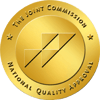On April 7, 2023, a remarkable event took place at Soberman's Estate in Cave Creek, Arizona, addressing the pressing issue of treating traumatic stress and addictions. The participants were serenaded by the calming sound of a local Native American Flute Artist, as well as savoring a remarkable lunch meticulously crafted and served by Chef Steve Sordo. Lunch was prepared with fresh ingredients from the greenhouse located on the estate property. The workshop was led by experts, Dr. Thomas Gazda, a board-certified addiction psychiatrist, and Jerry Ehmann, LPC, LISAC, NCC. Attendees had the opportunity to learn about the latest evidence-based treatment approaches for individuals struggling with trauma and addiction, followed by a tour of the facility and a chance to meet the therapeutic providers. In this blog post, we'll recap the key takeaways from the event and share our thoughts on the essential lessons learned.


Jerry Ehmann, LPC, LISAC, NCC and Executive Clinical Director of Soberman's Estate

The remarkable lunch prepared by Chef Steve Sordo

Manic Events in Early Recovery:
During the workshop, Dr. Gazda delved into the complexities of treating manic events in early recovery. He emphasized the importance of early identification of these episodes, as well as appropriate pharmacological and psychological interventions to prevent relapse and promote a healthy recovery. Attendees learned about various coping strategies, medication options, and therapy approaches, gaining a comprehensive understanding of the management of manic events in early recovery.
MAT Interventions During Detox:
Medication-Assisted Treatment (MAT) is a crucial element in the treatment of substance use disorders, particularly during the detox phase. Dr. Gazda discussed the benefits of using MAT interventions to reduce withdrawal symptoms, craving, and the risk of relapse. He also explained the importance of tailoring treatment plans to each individual's needs, highlighting the importance of a personalized and collaborative approach to recovery.
Accelerated Resolution Therapy:
Accelerated Resolution Therapy (ART) is an evidence-based psychotherapy technique that has shown efficacy in treating trauma-related disorders. The workshop explored the principles and techniques of ART, illustrating how this short-term therapy can help clients process traumatic memories and reduce symptoms of PTSD. Attendees left with a better understanding of the potential benefits of incorporating ART into their clients' treatment plans.
Comparison of Trauma-Informed Treatments:
Jerry Ehmann provided a comprehensive comparison of various trauma-informed treatments, including EMDR, CBT, and DBT. He examined the similarities and differences in these approaches, as well as their effectiveness in treating trauma and addiction . This comparison provided attendees with valuable insights to help them make informed decisions about the best treatment options for their clients.
Prevalence of Trauma in Residential Centers:
Lastly, the presenters discussed the high prevalence of trauma among individuals in residential treatment centers. They stressed the need for trauma-informed care in these settings, highlighting the importance of creating a safe, supportive environment for clients to heal and recover. Attendees learned about best practices for implementing trauma-informed care in residential centers and the positive impact this approach can have on client outcomes.
Conclusion:
The "Treating Traumatic Stress and Addictions" event at Soberman's Estate was an enlightening experience for attendees, equipping them with valuable knowledge and tools to better serve their clients. The workshop underscored the importance of a comprehensive, trauma-informed approach to treating addiction and offered practical guidance on implementing evidence-based interventions. We look forward to applying these insights in our practice and continuing the conversation around the vital topic of trauma and addiction treatment.
Soberman's Estate is a residential men's addiction treatment center that provides discreet, individualized, sophisticated recovery and wellness services for adult men that want to recover from substance use disorders, and or other behavioral issues such as trauma, anxiety, depression, stress, or other addictions.







